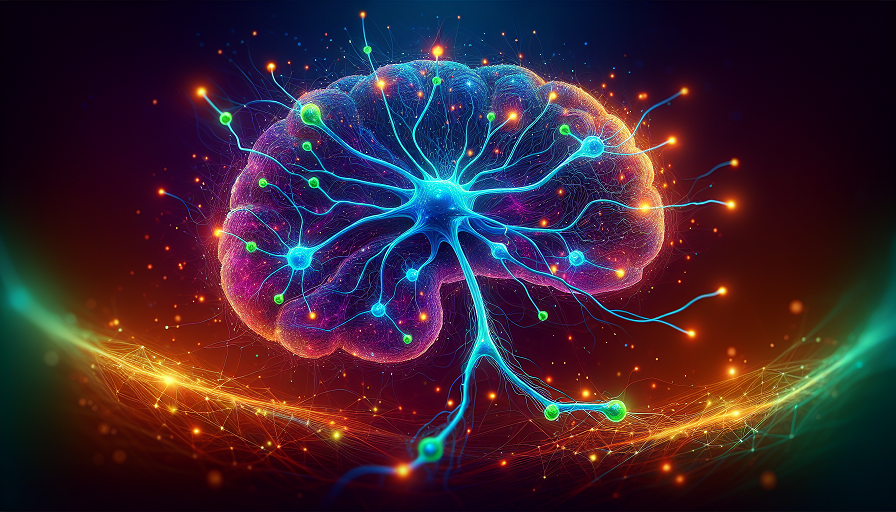
Have you ever listened to a song and felt a sense of absolute harmony, as if the melody was specially designed to resonate with you? You’re not alone. Ever since humans have been creating music, we’ve been endlessly intrigued by why some melodies captivate us while others don’t. The answer lies in the intricate workings of our brains, the seat of musical creativity. Here we look at how different parts of the brain come into play and possibly reveal why certain tunes simply ‘feel right’.
Contents
The Mystery Behind Musical “Rightness”
Music has a unique power to evoke emotions, create memories, and even change our moods. But what makes a certain melody feel spot-on, while another might fall flat? To understand this, we first need to consider what scientists refer to as “musical consonance” and “dissonance”. Musical consonance involves sounds that are pleasing to our ears. Think of a well-tuned piano or a choir harmonizing together. On the other hand, dissonance refers to clashing sounds that might feel unsettling or tense.
Our brains are hard-wired to favor consonance because it reflects a pattern or balance. Throughout evolution, recognizing these patterns might have helped our ancestors survive by distinguishing friendly from threatening environments. This same pattern recognition could explain why some melodies feel right to us.
The Brain’s Role in Musical Creativity
Different regions of the brain contribute to our perception and creation of music. One crucial player is the auditory cortex, responsible for processing sound. When a musician crafts a melody, this part of the brain is lighting up, decoding every note and rhythm. But crafting a good tune involves more than just the auditory cortex. Let’s break it down further:
- Prefrontal Cortex: Tasked with decision-making, this part of the brain helps in conceiving the idea of the melody—imagining how notes might sound together before they even play them.
- Motor Cortex: This part controls movement, making it essential for playing instruments or singing with just the right amount of skill and finesse.
- Hippocampus: Known for memory and learning, it assists in recalling familiar tunes and patterns, considering what has worked well in the past.
- Reward Centers: Parts like the nucleus accumbens generate feelings of pleasure. Hearing a song we like activates these areas, reinforcing our enjoyment of music.
The Role of Emotions in Music
Music is not just about notes; it’s also about emotion. Ever found yourself crying during a sad song or feeling elated with an upbeat track? This happens because music triggers emotional responses that involve both the brain and body. Emotional experiences with music are processed through the limbic system, a network of structures in your brain known for handling emotions.
When you listen to a melody, this system evaluates the feeling it conveys. It’s why a minor key tends to sound sad, while a major key sounds happy. These patterns and expectations can make some melodies feel just right when they match or surpass our emotional expectations.
Improvisation and Innovation
Sometimes, the most beautiful melodies aren’t planned—they happen in the spur of the moment. This is known as improvisation, where musicians play without a pre-set structure, letting creativity and intuition guide them. During these moments, an area of the brain called the default mode network becomes crucial. This system is active when we’re doing something “passively” and provides an ‘aha’ moment—a fresh, creative idea that feels innovative and correct.
Improvisation often involves pushing boundaries, trying new things, and venturing into unknown territory, which makes it exciting and refreshingly new. Yet, it still must maintain some balance to feel right to the listener. That’s a delicate dance, keeping musicians and listeners engaged.
Our Personal Connection to Music
What feels right in a melody might differ from one person to another. Personal experiences, cultural background, and memories influence how we react to music. For example, a song you heard during a memorable vacation might always feel special, transporting you back to those happy times whenever you hear it.
Cultural influences also play a part in our musical preferences. Different cultures might have varying musical scales and traditions, which impact what feels right. So, a melody that feels harmonious to someone from one culture might not evoke the same response in someone from elsewhere.
Training Your Musical Brain
The exciting part is that our musical brains can be continually developed. Learning to play an instrument, engaging in singing, or even listening actively to diverse music can enhance your musical appreciation. These activities sharpen your brain’s ability to detect patterns, understand complex musical structures, and even create your melodies that just feel right.
The Influence of Brain Supplements
As we uncover the intricacies of how our brain processes music, an interesting area emerging is the potential role of brain supplements in enhancing cognitive functions related to musical creativity and appreciation. These supplements, often referred to as nootropics, are known for their cognitive-enhancing effects, which could be beneficial for musicians and music enthusiasts alike. Some brain supplements aim to improve memory, focus, and mental clarity, which are crucial components when practicing or creating music.
Nootropics like omega-3 fatty acids, found in fish oil, have been shown to support brain health, potentially benefiting areas involved in creativity and musical innovation. Ginkgo biloba, another popular supplement, is believed to enhance cognitive function by increasing blood flow to the brain, potentially enhancing auditory processing and attention to detail, both vital in music.
While more research is needed to fully understand the impact of brain supplements on musical abilities, the idea that one could boost their creative or musical capacity through enhanced cognitive function is an exciting prospect. As always, it’s essential to consult with a healthcare provider before starting any supplement regimen, especially to tailor it to individual needs and ensure overall safety.
In Tune with Our Brains
Music is as much a product of our brains as it is of our cultures and environments. The compelling sense of ‘rightness’ we feel when we hear a melody comes from a beautiful symphony played out in neural terms, intertwining emotional resonance, pattern recognition, and individual experiences. The next time you experience that perfect note or an unforgettable tune, you’ll know that it’s a fabulous blend of your brain in action, your heart, and your unique personal history making it feel just right.

